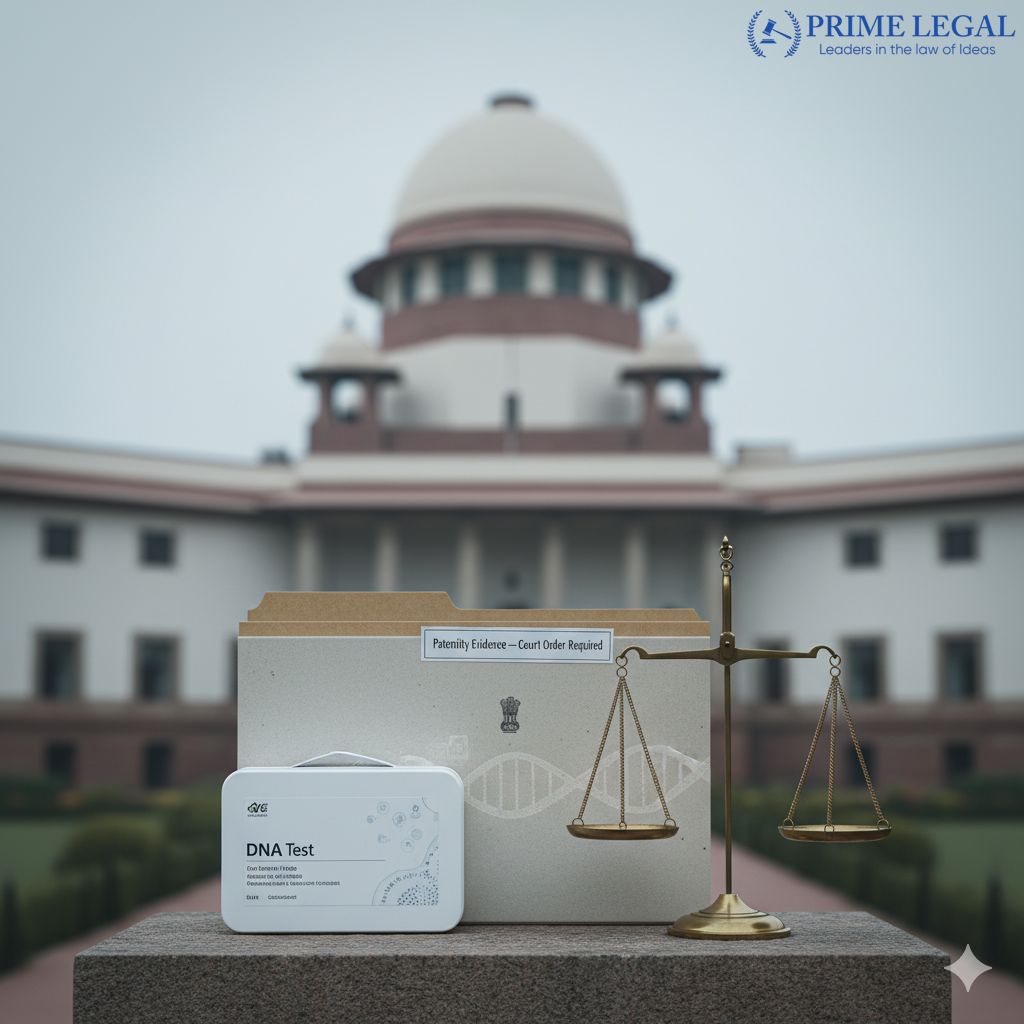INTRODUCTION
The Supreme Court recently clarified the legal threshold for directing DNA test recently. The Court stated that, compelling the accused for DNA, where the issue of paternity has no direct nexus with the allegations with the case, violates his right to privacy and bodily autonomy, under Article 21 of the Constitution.
BACKGROUND
The case arose from a proceeding in which the complainant attempted to link the paternity of a child to the accused, despite the criminal allegations themselves having no connection with such a determination. The Trial Court permitted a DNA test to ascertain the paternity. This decision was upheld by the High Court.
Aggrieved by the order the accused approached the Supreme Court, arguing that forcing a DNA test, without any legitimate purpose would amount to an infringement of his fundamental right and dignity.
KEY POINTS
The Supreme Court emphasized that DNA test cannot be directed as a routine measure. The power to order DNA test must be exercised sparingly and only if it is absolutely necessary for the adjudication of the case.
The Court observed that compelling a person without legitimate reason would amount to infringement of his right to privacy, bodily integrity and personal autonomy. Such direction must therefore meet the test of reasonable necessity and proportionality.
The Court further pointed out that in the present case the question of paternity had no relevance to the criminal charges. Therefore, the observation of the both the courts to conduct the DNA test was not only legally unsustainable but was also capable of causing undue stigma, emotional distress and social consequences.
The Court hence had set aside the order of the Trial Court and the High Court, and protected the right of the individual from being compelled to undergo DNA testing without lawful justification.
RECENT DEVELOPMENTS
There has been an increasing judicial sensitivity in towards misuse of medical and genetic testing in criminal and matrimonial disputes. Post the landmark judgement in K.S. Puttaswamy v. Union of India (2017) 10 SCC 1, courts have reaffirmed that privacy is a fundamental right, and any intrusion may satisfy the standards of legality, necessity, and proportionality.
The recent ruling have consistently held:
- Courts should avoid DNA test unless indispensable for justice
- Right to privacy and bodily autonomy must be protected
- Judicial directions must prevent social harm, stigma and misuse of personal biological information.
The recent decision aligns with the future of the judicial approach that personal liberties must not be sacrificed where alternative does exist and also where there’s no direct link of the same.
CONCLUSION
The Supreme Court held that justice cannot be done where there is compromise with the personal dignity and constitutional freedoms. Ordering of a DNA test where the issue of paternity is not related to the matter at hand is unwarranted and is disproportionate. The decision states that the Courts must act with caution, prevent unnecessary intrusion into personal lives, and ensure that the law is applied in the manner that balances investigative needs with constitutional rights.
“PRIME LEGAL is a full-service law firm that has won a National Award and has more than 20 years of experience in an array of sectors and practice areas. Prime legal falls into the category of best law firm, best lawyer, best family lawyer, best divorce lawyer, best divorce law firm, best criminal lawyer, best criminal law firm, best consumer lawyer, best civil lawyer.”
WRITTEN BY- SOUMITA CHAKRABORTY


